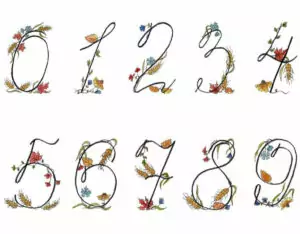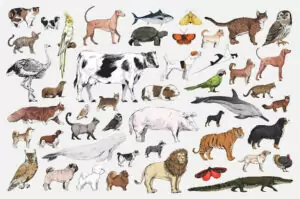Beer is a cornerstone of German culture, deeply woven into the country’s social fabric and traditions. If you’re a beer enthusiast and a German-learner, you’re in for a treat! In this guide, we will teach you how to say “beer” in German, explore the various types of German beer, and introduce you to the art of toasting and saying “cheers” in German. Let’s immerse ourselves in the rich world of German beer culture!

✅ AI Essay Writer ✅ AI Detector ✅ Plagchecker ✅ Paraphraser
✅ Summarizer ✅ Citation Generator
German Beer Culture: A Brief Overview
Before we dive into the language aspect, let’s take a moment to understand the significance of beer in German culture. From Feierabendbier (end of the workday beer) to Oktoberfest celebrations, beer is an integral part of daily life in Germany. Germans take great pride in their regional beers, and you’ll find a diverse range of beers to suit every taste.
When visiting a German-speaking country, understanding beer culture is as basic as possessive pronouns in German. For example, imagine yourself at a traditional Biergarten (beer garden) on a warm summer evening. You can hear the clinking of glasses and laughter as locals and visitors come together to enjoy a refreshing brew. German beer culture fosters a sense of community and conviviality.
How to Say “Beer” in German
The German word for “beer” is “das Bier,” with the plural form being “die Biere.” Remembering these simple words will be the key to enjoying a refreshing drink in any German-speaking country. Additionally, learning how to pronounce these words correctly will help you communicate effortlessly with locals.
Let’s practice some common beer-related phrases:
Scenario 1 – Ordering at a Pub
- Waiter: “Kann ich Ihnen etwas bringen?” (Can I get you anything?)
- Customer: “Ich warte auf eine Freundin, aber ich hätte gerne ein Bier, bitte.” (I’m waiting for a friend, but I would like a beer, please.)
- Waiter: “Welches Bier möchten Sie?” (Which beer would you like?)
- Customer: “Kann ich ein helles Bier bekommen, nicht zu bitter?” (Can I get a light beer, not too bitter?)
- Waiter: “Natürlich, kommt sofort.” (Absolutely, coming right up.)
- Customer: “Danke!” (Thank you!)
Scenario 2 – Celebrating with Friends
- Friend 1: “Wie war die Arbeit heute?” (How was work today?)
- Friend 2: “Ich brauche ein Bier!” (I need a beer!)
- Friend 1: “So schlimm?” (That bad?)
- Friend 2: “Nein, war schon in Ordnung. Ich hatte bloß viel zu tun. Deshalb hab ich mir ein Feierabendbierchen verdient.” (No, it was alright. I just had a lot to do, so I deserve a little end of work beer.)
- Friend 1: “Bin dabei!” (I’m in!)
The Rich Variety of German Beers
Germany boasts an impressive array of beer types, each with its unique taste and characteristics. Here’s a list of popular German beer types and how to say them in German:
- IPA (India Pale Ale) – Das IPA (India Pale Ale)
- Dark beer – Dunkles Bier
- Light beer – Helles Bier
- Lager – Das Lager
- Stout – Das Starkbier
- Pilsner – Das Pilsner
- Wheat beer – Das Weißbier
- Ale – Das Ale
- Sour ale – Das Sauerbier
- Porter – Das Porter
- Root beer – Das Rootbeer
- Cold beer – Kaltes Bier
- Draft beer – Das Fassbier
- Craft beer – Das Craft-Bier
Each beer type has its own unique characteristics, making the German beer experience truly exceptional. Whether you prefer a crisp and hoppy Pilsner or a malty Dunkles Bier, Germany has something to offer every beer lover.
Describing Beer in German
If you want to impress your friends with your beer knowledge, knowing how to describe beer in German is a must! Here are some adjectives to describe various characteristics of beer:
- Delicious – Lecker; köstlich
- Cold – Kalt
- Strong – Stark
- Stout – Kräftig
- Light – Hell
- Hoppy – Hopfig
- Fresh – Frisch
- Fruity – Fruchtig
- Malty – Malzig
- Roasty – Röstig
- Sour – Sauer
- Bitter – Bitter
- Sharp – Herb
- Bright – Hell
- Earthy – Erdig
- Frothy – Schaumig
- Grainy – Körnig
- Natural – Natürlich
- Aromatic – Aromatisch
- Caramelly – Karamellig
- Acidic – Säuerlich
- Sweetish – Süßlich
- Spicy – Würzig
The Art of Toasting in German
Toasting with friends or colleagues in German is a delightful part of the beer-drinking experience. The word “Prost!” serves as the German equivalent of “Cheers!” and can be used in various social settings. Whether you’re at a lively Oktoberfest celebration or a casual get-together at a local pub, raising your glass and saying “Prost!” will instantly connect you with the German beer culture.
When toasting, it’s essential to make eye contact with everyone present and clink your glasses gently. In a festive atmosphere like Oktoberfest, you may also hear the traditional German drinking song “Ein Prosit der Gemütlichkeit,” encouraging camaraderie and friendship.
Remember to say “Bitte” (Please) and “Danke” (Thank you) when ordering another round of drinks. These polite gestures will show respect for the German drinking culture and further enhance your experience.
Embracing German Beer Culture
German beer culture is steeped in history and tradition, from the Reinheitsgebot (German purity law) to unique beer spas and quirky mixed beer drinks. Discover how Germans open beer bottles without a bottle opener, showcasing their resourcefulness and appreciation for beer.
When visiting Germany, consider joining locals in celebrating traditional beer festivals like Oktoberfest or exploring smaller beer towns that offer a more intimate glimpse into regional brewing practices.
Conclusion
As you embrace the world of German beer culture, you’ll find that learning how to say “beer” in German is just the beginning of a fascinating journey. From trying different beer types to mastering German drinking phrases, your language skills will seamlessly blend with the joy of experiencing Germany’s beer traditions. Prost to your new adventure in the world of German beer!
FAQ
Follow us on Reddit for more insights and updates.





Comments (0)
Welcome to A*Help comments!
We’re all about debate and discussion at A*Help.
We value the diverse opinions of users, so you may find points of view that you don’t agree with. And that’s cool. However, there are certain things we’re not OK with: attempts to manipulate our data in any way, for example, or the posting of discriminative, offensive, hateful, or disparaging material.